Peter: It’s how things used to be, right? Back in olden Shakespeare time. The only thing now is that it’s felt hard to find a continued life for these plays. Especially because there are people I’d love to continue with it. It’s harder to let go because of that.
But there was a lot of freedom to experiment with the work I did here because I was in the room with the actors. You let me design the development process I wanted, and I could do that without guilt because the residency had money to fund those steps. That was one thing I was happiest about, in terms of the way it was structured. That I had money I could use to fulfill my whims.
I also knew that, in the first three years, there was no additional money coming to Z Space to support me other than the money for me through NPRP. I felt sensitive to overtaxing the organization.
Lisa: We have limited resources. And you’re unfortunately privy to a lot of that information. In some ways that’s a good thing. Part of the playwriting residency is making sure artists really understand the nuts and bolts of the business. Many times, when we can’t help or we say no, it’s not out of not wanting to do something, but not being able to find the resources to do something. I appreciate that you were always cognizant that that’s a reality of the business we’re in.
Peter: That definitely was a learning for me. Being aware that when there’s a commitment to something by an organization—especially one as lean as Z Space, and not as supported by big donors—it’s a huge investment of time and energy to find that money. It was important I respected that.
You let me design the development process I wanted, and I could do that without guilt because the residency had money to fund those steps.
Lisa: Now that you’re done your residency here, do you still consider Z Space your home?
Peter: Definitely. It does feel like home, and in a real way. It doesn’t feel dysfunctional. I think we both got things out of it, and there’s no resentment.
It also kept me in the theatre business for six years. There was an earlier stage in my writing career where things kind of leaped, and I’m not in a leaping period at the moment. I’m not the fresh meat I once was, and it was nice to be supported in a time when I was just building a body of work, building a career, building plays. It was a good time for this residency. Otherwise I might have moved into other mediums.
Lisa: It’s so hard to make a living on what playwrights normally get paid. When you hear Tony Kushner can’t make a living doing it, there’s something wrong with the whole industry. And that’s partly why NPRP was created. Because it keeps playwrights in the field. You and I know so many people who are straddling both worlds of playwriting and the film and TV industry. Because at the end of the day you have to pay your bills.
Peter: In year six of my residency, I was like, Oh, shit. The money’s over. And unfortunately in the long term I don’t feel any more secure. But I don’t know if anyone does.
Lisa: I know I don’t.
Peter: Do you think you would ever have another resident artist?
Lisa: In a heartbeat. I would love to always have a resident playwright. And I would love to be able to bring in another playwright under your leadership or mentorship for a year. I think there are different ways of doing it so there’s a support system in place. It would also be great to have a resident director for three years. Could be an actor, too.
In the regional theatre circuit in the seventies and eighties, supporting artists was something that happened. But it is not financially viable anymore.
Peter: Yeah, they had companies.
Lisa: It’s just so expensive.
Peter: One nice thing about this residency is that it’s harder here in San Francisco, or maybe just more abnormal, to be a professional artist. There are lots of opportunities to do art and put stuff up, but if you want to make it your life, your career, you’re not in the majority. It’s a thing I love and a thing I hate about being here.
I like living away from New York City and not being stuck in the industry machine of theatre, and also then, when I go there, I have fresh energy and enough of a naivety that I can ask for things that other people are scared to ask for. My group of friends here—none of them are artists, and they don’t really understand how I do this. They’re all great supporters, but it is different to live in a place where very few people are doing what we’re doing.
I’m not the fresh meat I once was, and it was nice to be supported in a time when I was just building a body of work, building a career, building plays.
Lisa: It’s weird, too, because San Francisco used to be a place of art-making and art-makers. For an urban, metropolitan, fairly sophisticated city, I can’t name one playwright, besides you during the residency, who’s actually making a living.
You have such a specific voice—I guess every writer does—but yours in particular is so specific to this region. It’s intelligent and uses great humor, it always has sex, and I think the anus is probably the one body part that is always an influential factor in your work.
Peter: Yes. It’s the portal, so to speak, to my mind. If anyone were ever to publish a collection of my plays, we already know what the cover art would be.
Lisa: I don’t think any other playwright could say that. How has Z Space influenced your writing? Aside from having that kind of freedom, I suppose, and writing for specific people.
Peter: I write a lot of plays for a nice, passive audience, I really like those. And being here pushed me out of that and challenged me to explore other ways to tell stories, which has gotten me on a longer journey of that kind of writing. I think creating House Tour, which was immersive, which got an audience to move around, which engaged them viscerally and very tactile-y… Not only writing a script for what the character says but also writing the environment was really interesting to me. It was almost like designing a world that someone would be walking into.
I think a lot of my plays are very tight in their timing and their dialogue, and there’s been a creative step forward in that. I now have some plays where there are eddies, things that aren’t so tied to moving a story or plot forward, and are also maybe a little more under the surface in how they’re trying to get at people. Like how to make an audience have a feeling that’s not just because I wrote a funny line, but because of a cumulative effect of whatever it is the piece, an overall vibe that’s been generated. The hotel room play is kind of like that: it’s a play that’s very much environmental or atmospheric.
I’m putting pressure on myself, which is making it hard to write. But I think that’s okay. It’s something that’s come out of being here. There’s so much different work that comes through the doors at Z Space, and that’s fun and inspiring. There are different ways of reinventing space and audience dynamics. I think that’s the stuff that does really well here.
I did a reading of the hotel room play here just a few months ago, and I got to cast the Z Space staff as the characters.
Lisa: And a board member, too. I played the cranky old lady, no typecasting there.
Peter: You would not have been right for this part six years ago.
Lisa: No, I would have been way, way too young, and too much on the ingénue side of things.
Being here pushed me out of that and challenged me to explore other ways to tell stories.
Peter: The play is six strangers in a hotel room, and my big goal is to not have any of them talk about their past.
Lisa: I love that.
Peter: That’s hard for me for some reason. Because it’s a potentially very easy play to write. Not easy—no play is easy to write—but I could write a bad draft of that play that would make sense. But I’m trying to avoid doing that.
Lisa: I just directed the play Ripped by Rachel Bublitz here in San Francisco, and Rachel, full circle, was a student of yours.
Peter: She wrote the first draft of that during a workshop I was teaching.
Lisa: The thing I love about her play is that there’s really no exposition in it, no information about the past. It’s happening in real time, although not chronological time. When we went into rehearsal she had a big memory monologue, which I loved, but it just didn’t fit in the world, because it was memory. Ripped is not wrapped up in a nice bow at the end, and people’s interpretation of the events varies widely. I like working in the grey area of reality.
Peter: I like that too about that play.

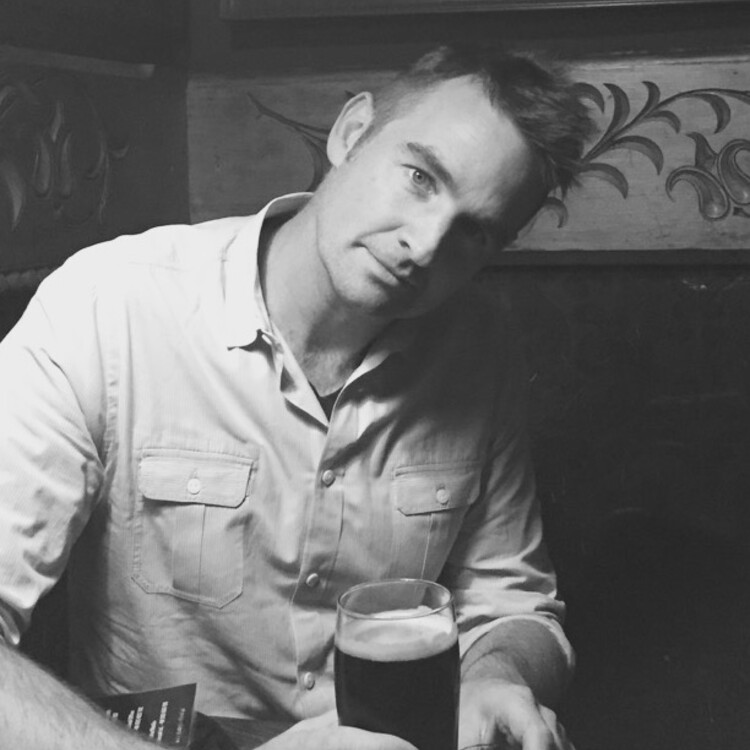
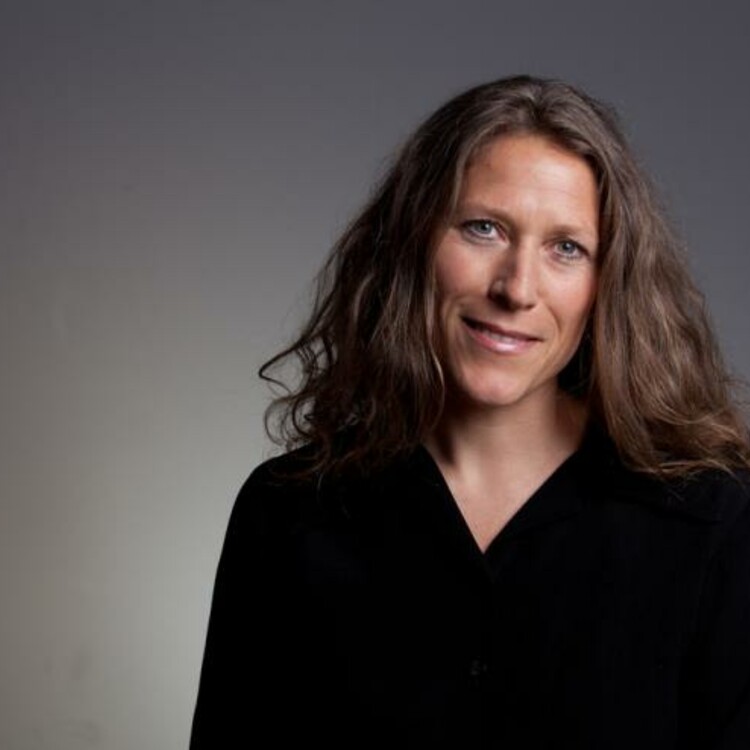
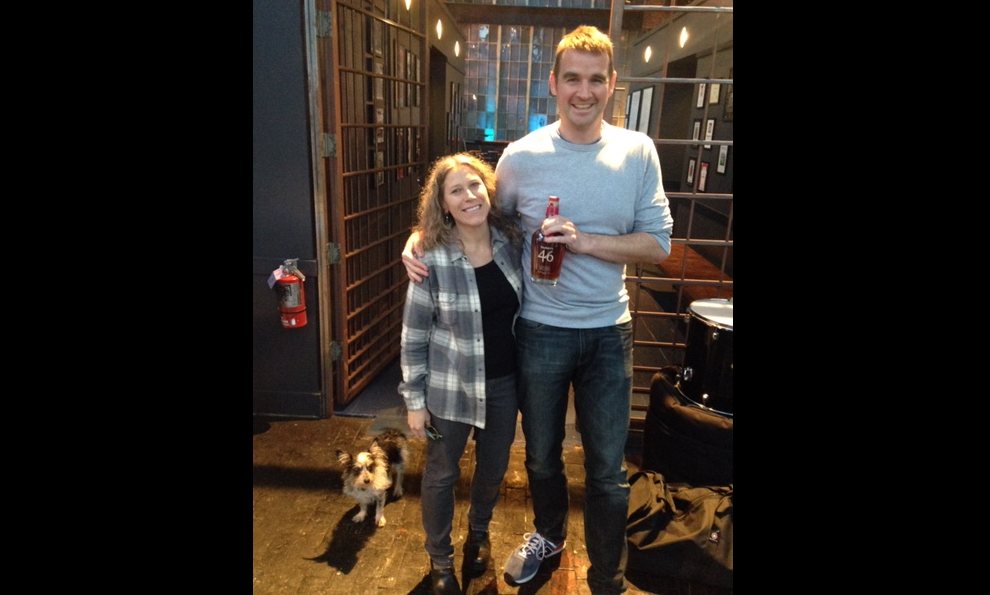
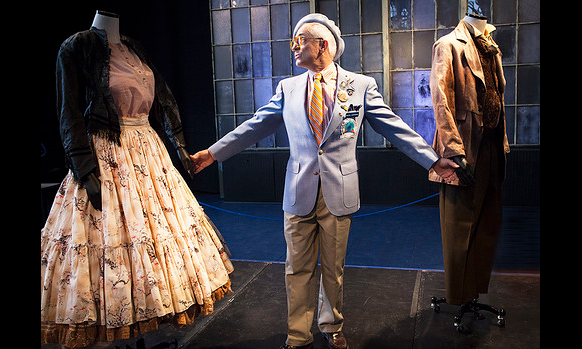
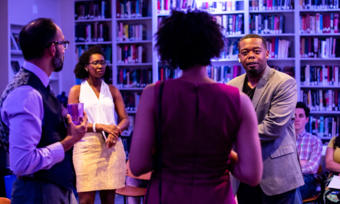


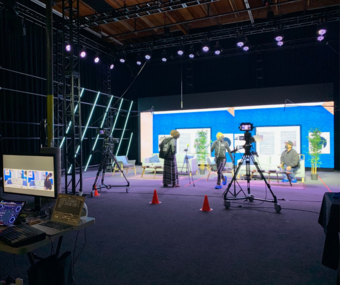



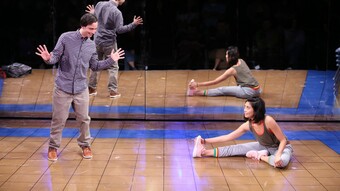


Comments
The article is just the start of the conversation—we want to know what you think about this subject, too! HowlRound is a space for knowledge-sharing, and we welcome spirited, thoughtful, and on-topic dialogue. Find our full comments policy here